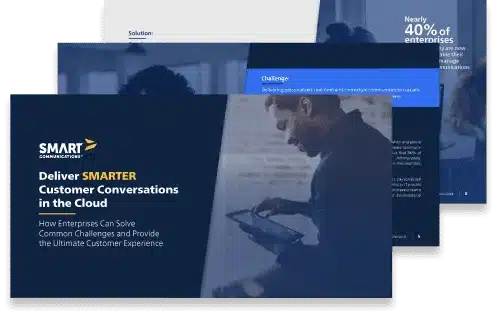How Digitization of Group Enrollment & Communications Improves Customer Engagement
Like most businesses, health insurers were forced to improvise during the pandemic. Their paper-heavy, face-to-face model of enrolling new members proved more cumbersome and time-consuming than ever. The experience drove home the need to reevaluate the way they onboard and communicate with customers.
As a result, a growing number of insurers are digitizing the group enrollment process. Scanning, faxing and mailing forms, many of them with duplicate information and signatures, is simply no longer necessary.
In this on-demand webinar, experts discuss five ways to digitize onboarding and communication—and boost customer loyalty, retention and satisfaction:
- Replace paper forms with guided, adaptive interviews that allow for a tailored Q&A
- Eliminate the need to re-enter the same member information on multiple forms
- Make onboarding forms available across multiple devices Integrate digital signatures
- Improve operational efficiency and employee satisfaction by reducing typos, illegible handwriting and the like



